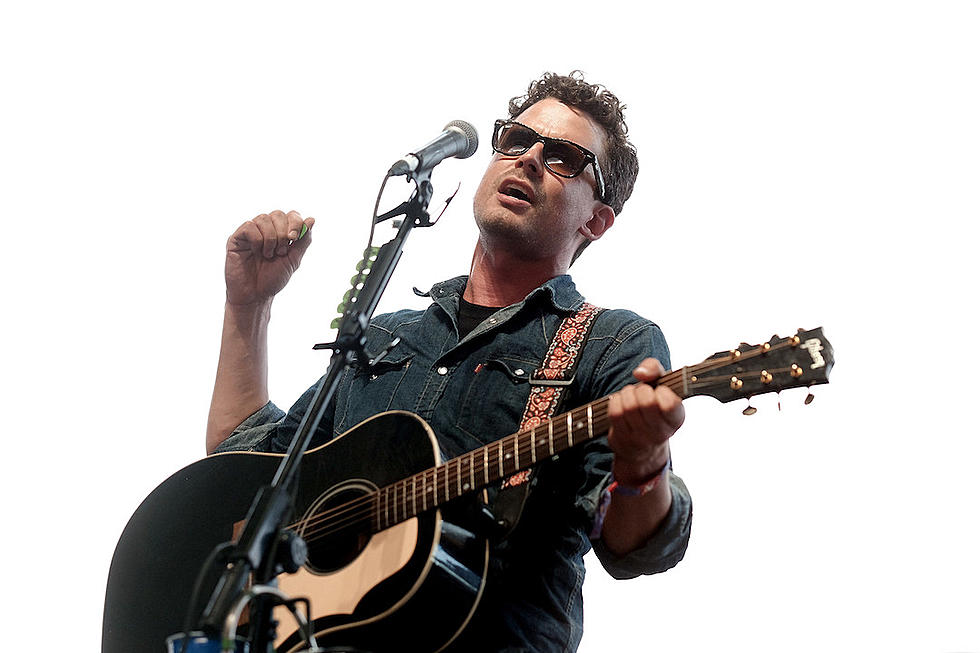
Unearthed Woody Guthrie Tape Reveals Wilco, Bragg Weren’t the First to Set Music to ‘Hoodoo Voodoo’
Billy Bragg and Wilco's 1998 studio album Mermaid Avenue consists of a collection of previously unheard lyrics from folk icon Woody Guthrie, putting to music 15 tracks that Guthrie wrote the words to without ever recording -- or so the artists thought, until a recent discovery unearthed a rough tape of Guthrie performing one of Mermaid's songs, "Hoodoo Voodoo."
A version of the song performed by Guthrie alongside frequent collaborators Ramblin' Jack Elliott and Sonny Terry was recently discovered among some rare tapes of Guthrie's recordings in the Shel Silverstein archive, according to Variety. The trio likely cut their rollicking, informal version of the song in a 1954 session after a stint of drinking, resulting in a relatively rough and improvisational product. Still, the tape marks the first evidence that Guthrie himself set the tune to music as well as penning its lyrics.
Mermaid Avenue, which celebrated its 20th anniversary in 2018, began after the folk hero's daughter, Nora Guthrie, saw Bragg perform at a tribute concert in New York City and invited him to take a look at an old cache of song lyrics that her father had left behind. Nora hoped that the songs could gain fresh life with the help of a batch of musicians who understood Guthrie's legacy, introducing his music to a new generation of listeners.
The resulting project took its name from the Coney Island street where Guthrie lived in the 1940s and 1950s, and shared lead vocal and musical duties evenly between Bragg and the then-up and coming Americana and indie group.
Alongside the cheery, nearly childlike "Hoodoo Voodoo" on the rough tape were other, more somber songs, reaffirming that music's link to social justice and commentary was an important part of Guthrie's career. Two tracks off the newly discovered tape told the story of William McGhee, an African-American man who was sentenced to death for raping a white woman in Mississippi in 1945 and executed six years later, after a Communist-affiliated organization financed his defense.
More From TheBoot


![Jason Isbell, Margo Price and More Join Wilco for Star-Studded ACL Performance [WATCH]](http://townsquare.media/site/623/files/2022/01/attachment-Screen-Shot-2022-01-12-at-8.05.07-PM.png?w=980&q=75)


![Drive-By Truckers, Nikki Lane Highlight 2017 Newport Folk Festival [PICTURES]](http://townsquare.media/site/623/files/2017/08/the-avett-brothers-newport-2017-6.jpg?w=980&q=75)



